Partisan fighting leads Alexander Hamilton to refute claims of impropriety regarding the operations of the Bank of the United States "I rather avoid interference in the affairs of the Bank and am seldom consulted except as to general principles and as to those not always" Philadelphia, Aug(ust) 27, 1792. One sheet folded to make four pages, 9 15/16 x 7 7/8 in. (252 x 200mm). Autograph Letter, signed and executed entirely in the hand of Alexander Hamilton as the first United States Secretary of the Treasury, to John Hopkins, Loan Officer for the State of Virginia, refuting any direct influence over the First Bank of the United States: "I have received your private letter/of the 16th; and am obliged by the information it/contains, which I need not assure you will have/its due weight in a final comparison of the pretension,/of the different candidates, as far as I may have/any agency in the matter. This however is truly very/problematical; as I rather avoid interference in the/affairs of the Bank and am seldom consulted except as to/general principles and as to those not always..." Addressed and free franked by Hamilton on verso, docketed to same in a different hand. Creasing from original folds; scattered minor tears along edges and folds; remnants of wax seal, with small loss to edge, on verso. This rare letter reflects the incessant attacks leveled against Hamilton and his seemingly continuous need to defend his name. The very existence of the Bank was a constant source of partisan discord and would lead to numerous Congressional investigations against him in the years to come (see lots 28, 29, 30, 35). Ever since Alexander Hamilton submitted his report to Congress on a national bank, in December 1790, partisan tensions flared between those who supported it and those who were against it. The divide was roughly split along sectional lines of North and South, with the northern congressional majority firmly supporting the Bank, while the southern minority, led by Virginia Congressman James Madison, was vehemently against it. Madison and his southern delegates, who were rich in land and enslaved people, and often debtors to Northern merchants, viewed the Bank as a threat to their agrarian livelihood, believing that it would lead to their exploitation at the hands of a powerful northern aristocracy. Madison would go on to argue against the Bank's constitutionality in violating the necessary-and-proper clause in Article I, Section 8. The bitter partisan feud almost led to Washington's vetoing the bill, but he instead sought out the opinions of his cabinet—Attorney General Edmund Randolph, Secretary of State Thomas Jefferson and Secretary of the Treasury Hamilton. Washington would go on to support Hamilton's more flexible interpretation of the Constitution, and sign the bill into law. The bill's passage only enflamed partisan tensions and, coupled with other aspects of Hamilton's ambitious agenda, helped form the country's first two political parties: the Federalists—those aligned with Hamilton, Washington's administration, and a strong central government—and the Democratic-Republicans—those aligned with Madison and Jefferson, who favored an agrarian-based economy and a decentralized government. By August 1792 the nation had just recovered from its first financial crisis, the Panic of 1792. The Panic was due in part to a speculative frenzy created by the newly opened Bank and the expansion and contraction of credit that followed. Due to Hamilton's many legislative victories, and the ensuing Panic, Jefferson and Madison had come to view Hamilton as nothing short of a threat to the Republic. The political divide was firmly drawn in Congress, and felt even more strongly in Washington's cabinet as Hamilton and Jefferson engaged in a campaign to undermine each other. As Ron Chernow observes about the nature of this political divide, "By 1792, both political parties saw their opponents as mortal threats to the heritage of the Revolution.
Partisan fighting leads Alexander Hamilton to refute claims of impropriety regarding the operations of the Bank of the United States "I rather avoid interference in the affairs of the Bank and am seldom consulted except as to general principles and as to those not always" Philadelphia, Aug(ust) 27, 1792. One sheet folded to make four pages, 9 15/16 x 7 7/8 in. (252 x 200mm). Autograph Letter, signed and executed entirely in the hand of Alexander Hamilton as the first United States Secretary of the Treasury, to John Hopkins, Loan Officer for the State of Virginia, refuting any direct influence over the First Bank of the United States: "I have received your private letter/of the 16th; and am obliged by the information it/contains, which I need not assure you will have/its due weight in a final comparison of the pretension,/of the different candidates, as far as I may have/any agency in the matter. This however is truly very/problematical; as I rather avoid interference in the/affairs of the Bank and am seldom consulted except as to/general principles and as to those not always..." Addressed and free franked by Hamilton on verso, docketed to same in a different hand. Creasing from original folds; scattered minor tears along edges and folds; remnants of wax seal, with small loss to edge, on verso. This rare letter reflects the incessant attacks leveled against Hamilton and his seemingly continuous need to defend his name. The very existence of the Bank was a constant source of partisan discord and would lead to numerous Congressional investigations against him in the years to come (see lots 28, 29, 30, 35). Ever since Alexander Hamilton submitted his report to Congress on a national bank, in December 1790, partisan tensions flared between those who supported it and those who were against it. The divide was roughly split along sectional lines of North and South, with the northern congressional majority firmly supporting the Bank, while the southern minority, led by Virginia Congressman James Madison, was vehemently against it. Madison and his southern delegates, who were rich in land and enslaved people, and often debtors to Northern merchants, viewed the Bank as a threat to their agrarian livelihood, believing that it would lead to their exploitation at the hands of a powerful northern aristocracy. Madison would go on to argue against the Bank's constitutionality in violating the necessary-and-proper clause in Article I, Section 8. The bitter partisan feud almost led to Washington's vetoing the bill, but he instead sought out the opinions of his cabinet—Attorney General Edmund Randolph, Secretary of State Thomas Jefferson and Secretary of the Treasury Hamilton. Washington would go on to support Hamilton's more flexible interpretation of the Constitution, and sign the bill into law. The bill's passage only enflamed partisan tensions and, coupled with other aspects of Hamilton's ambitious agenda, helped form the country's first two political parties: the Federalists—those aligned with Hamilton, Washington's administration, and a strong central government—and the Democratic-Republicans—those aligned with Madison and Jefferson, who favored an agrarian-based economy and a decentralized government. By August 1792 the nation had just recovered from its first financial crisis, the Panic of 1792. The Panic was due in part to a speculative frenzy created by the newly opened Bank and the expansion and contraction of credit that followed. Due to Hamilton's many legislative victories, and the ensuing Panic, Jefferson and Madison had come to view Hamilton as nothing short of a threat to the Republic. The political divide was firmly drawn in Congress, and felt even more strongly in Washington's cabinet as Hamilton and Jefferson engaged in a campaign to undermine each other. As Ron Chernow observes about the nature of this political divide, "By 1792, both political parties saw their opponents as mortal threats to the heritage of the Revolution.
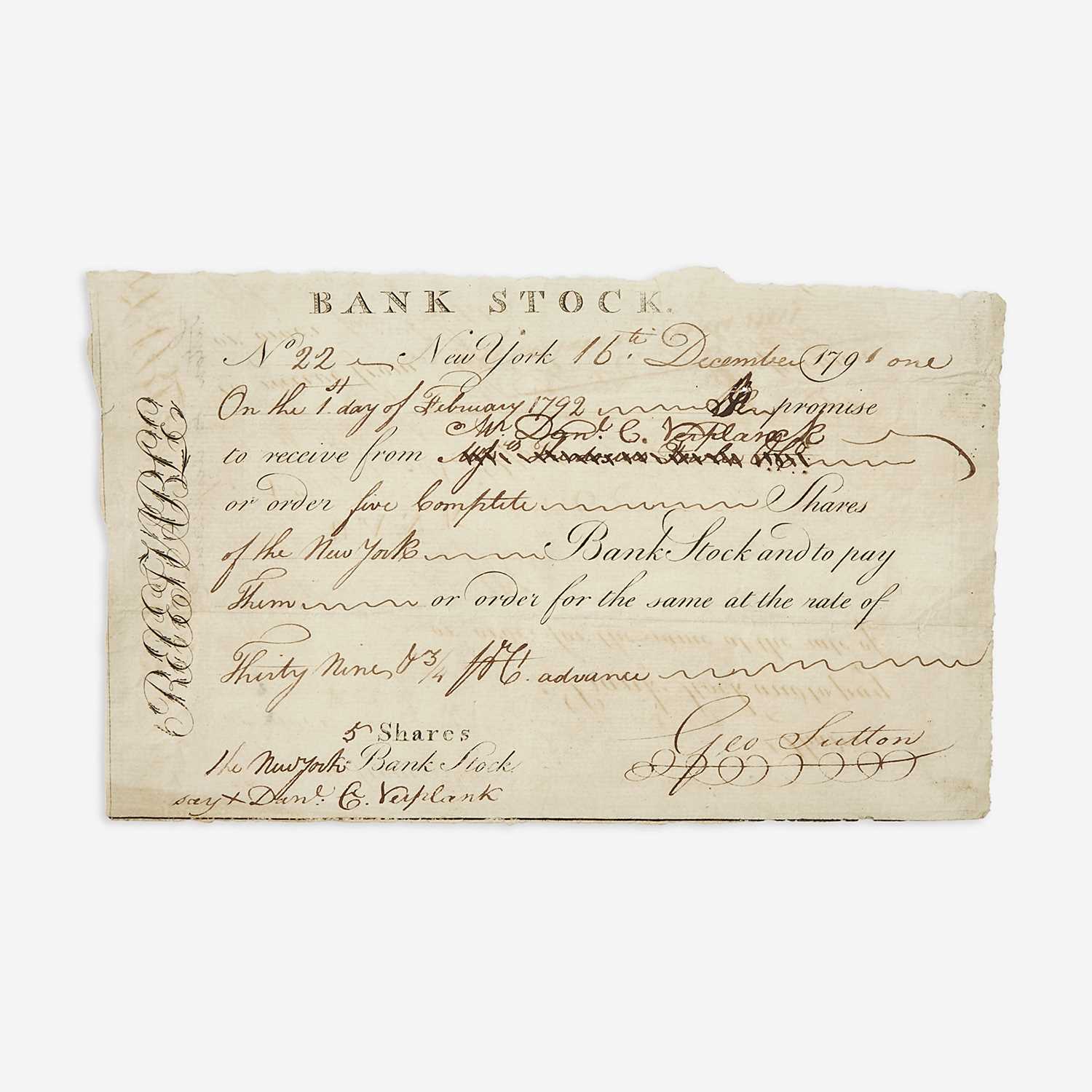
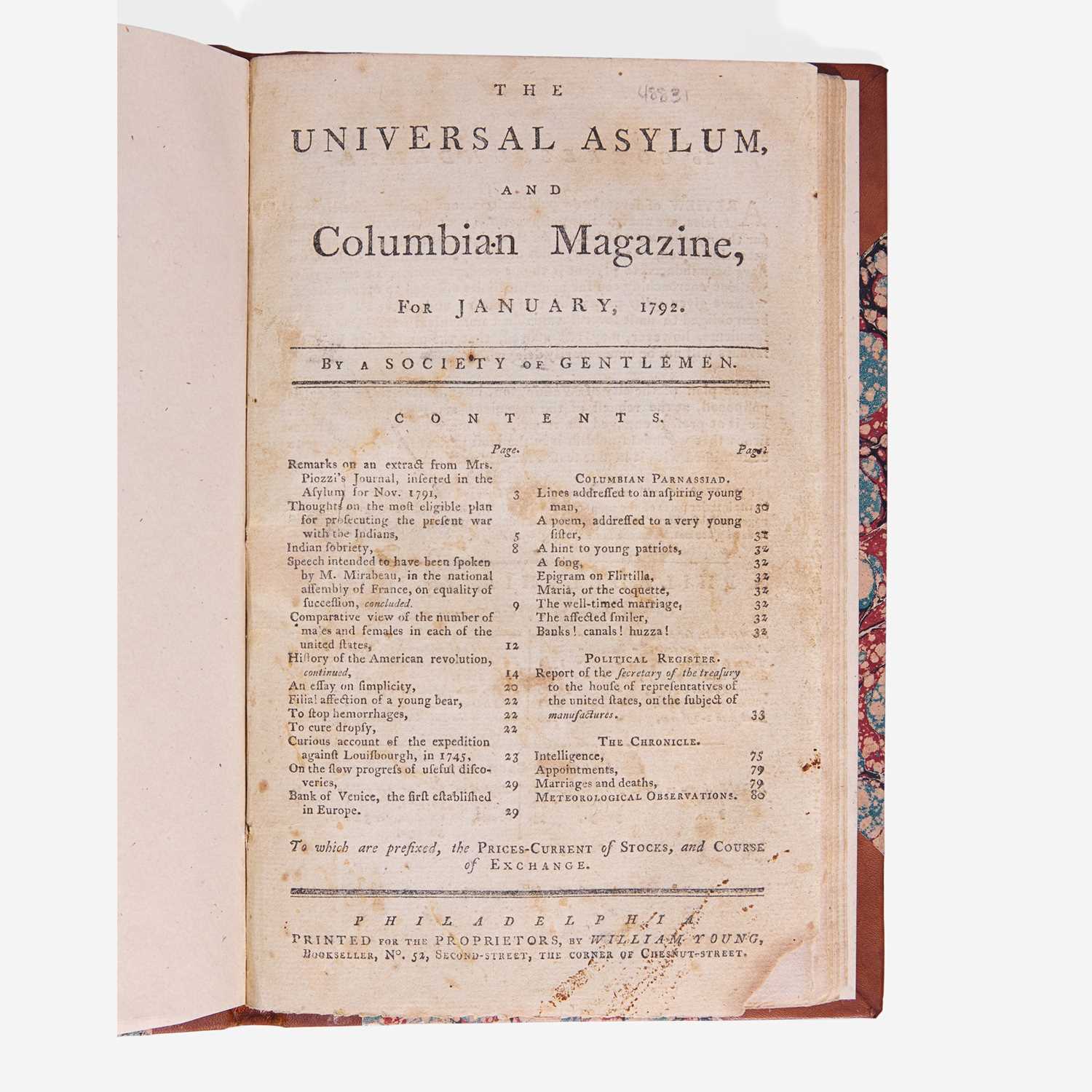
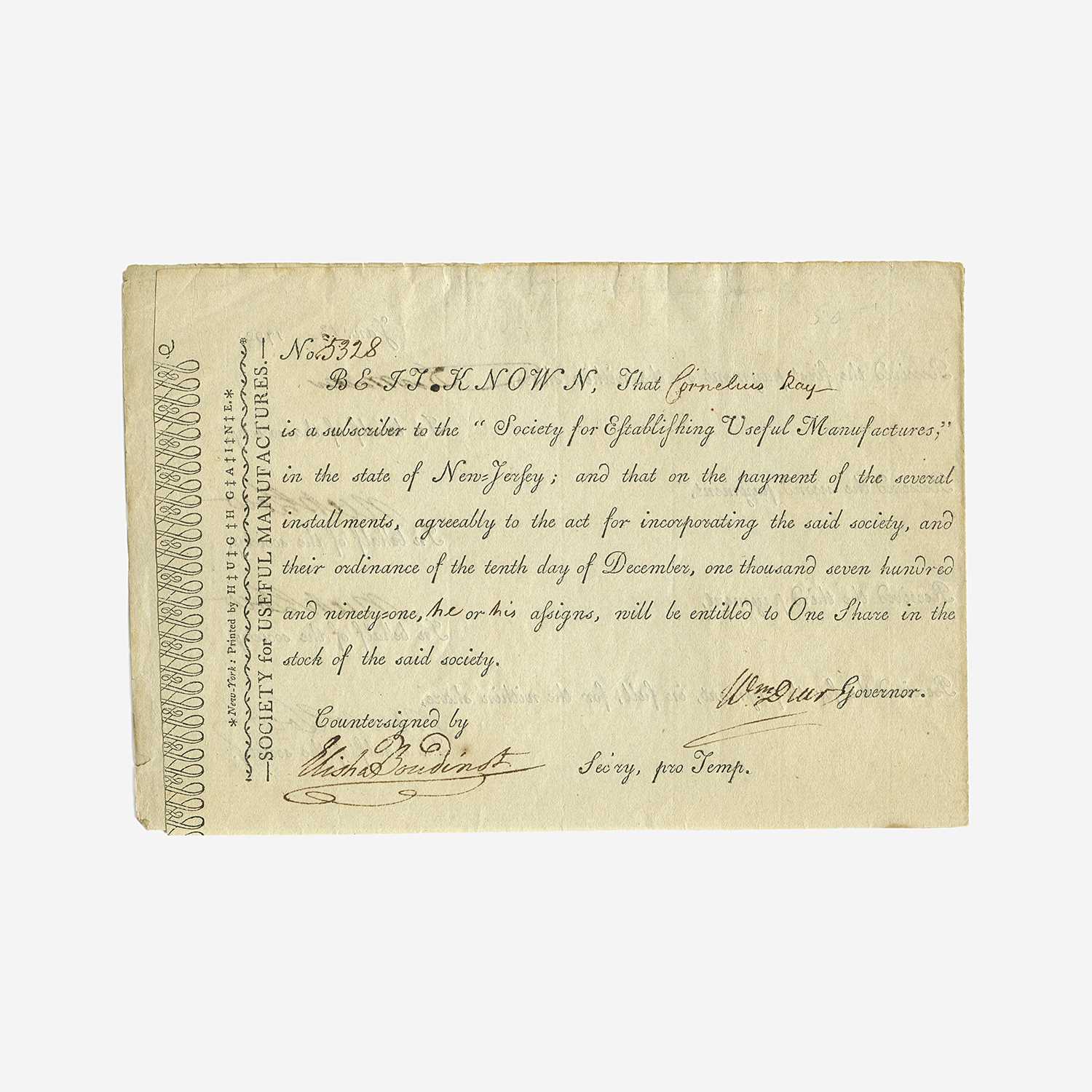
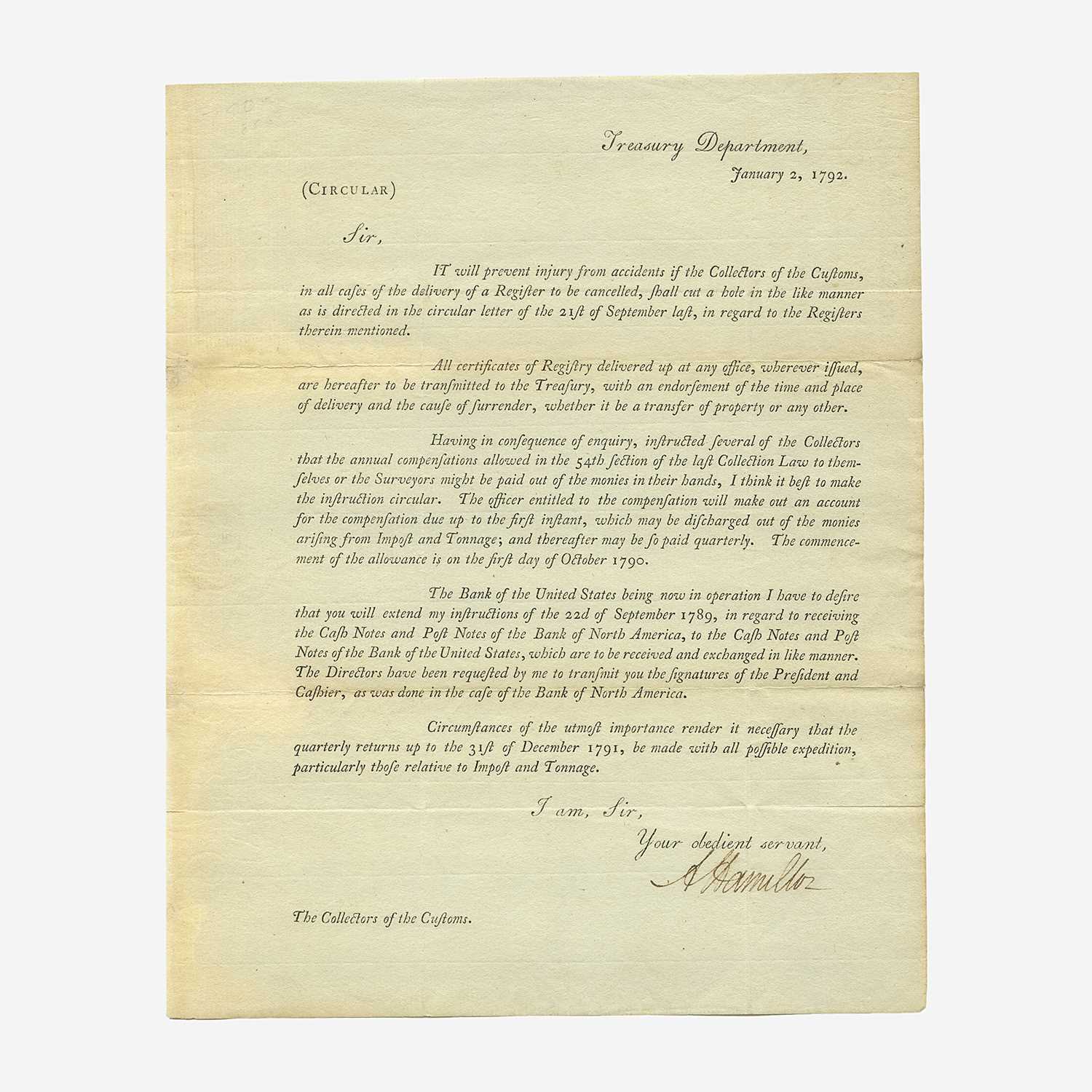
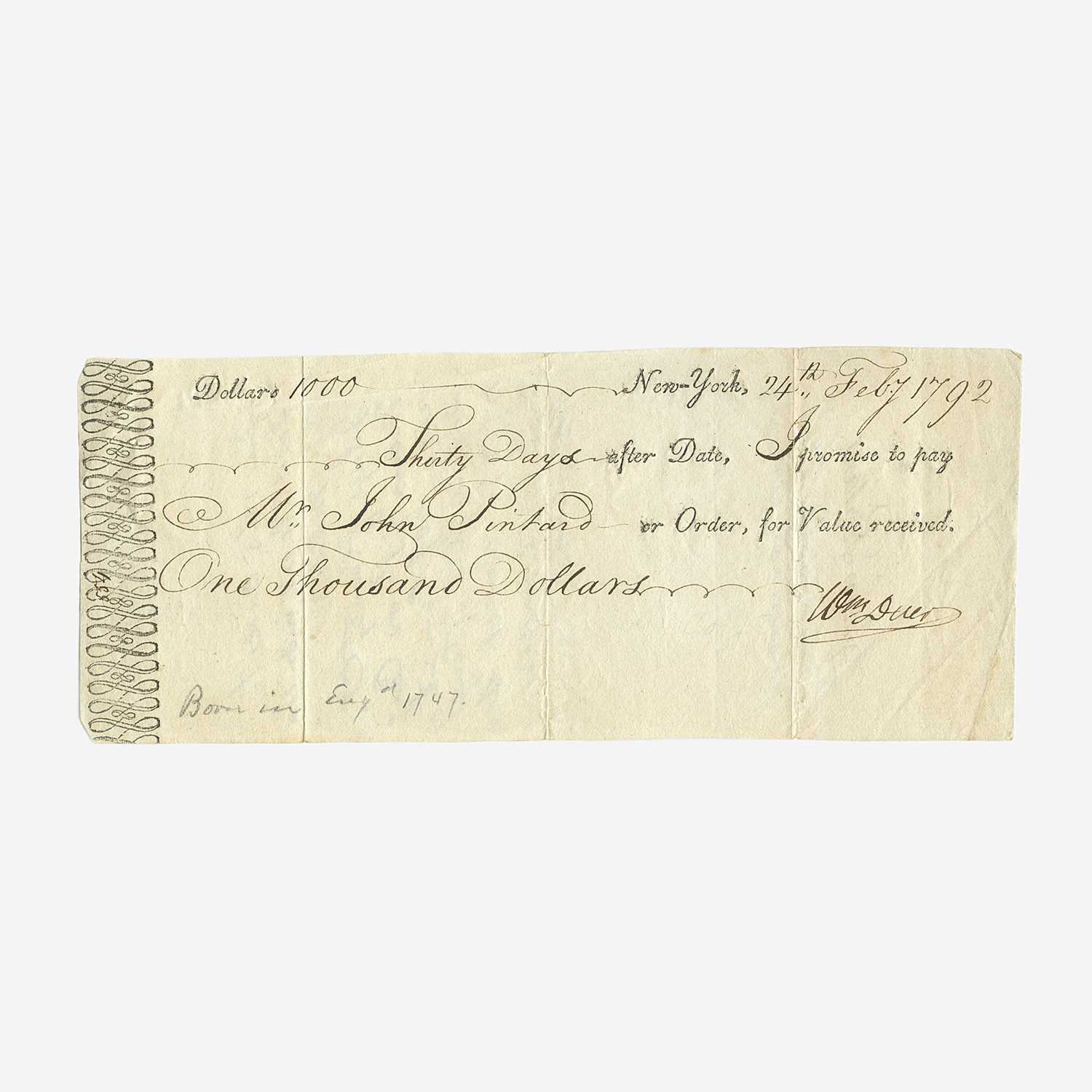
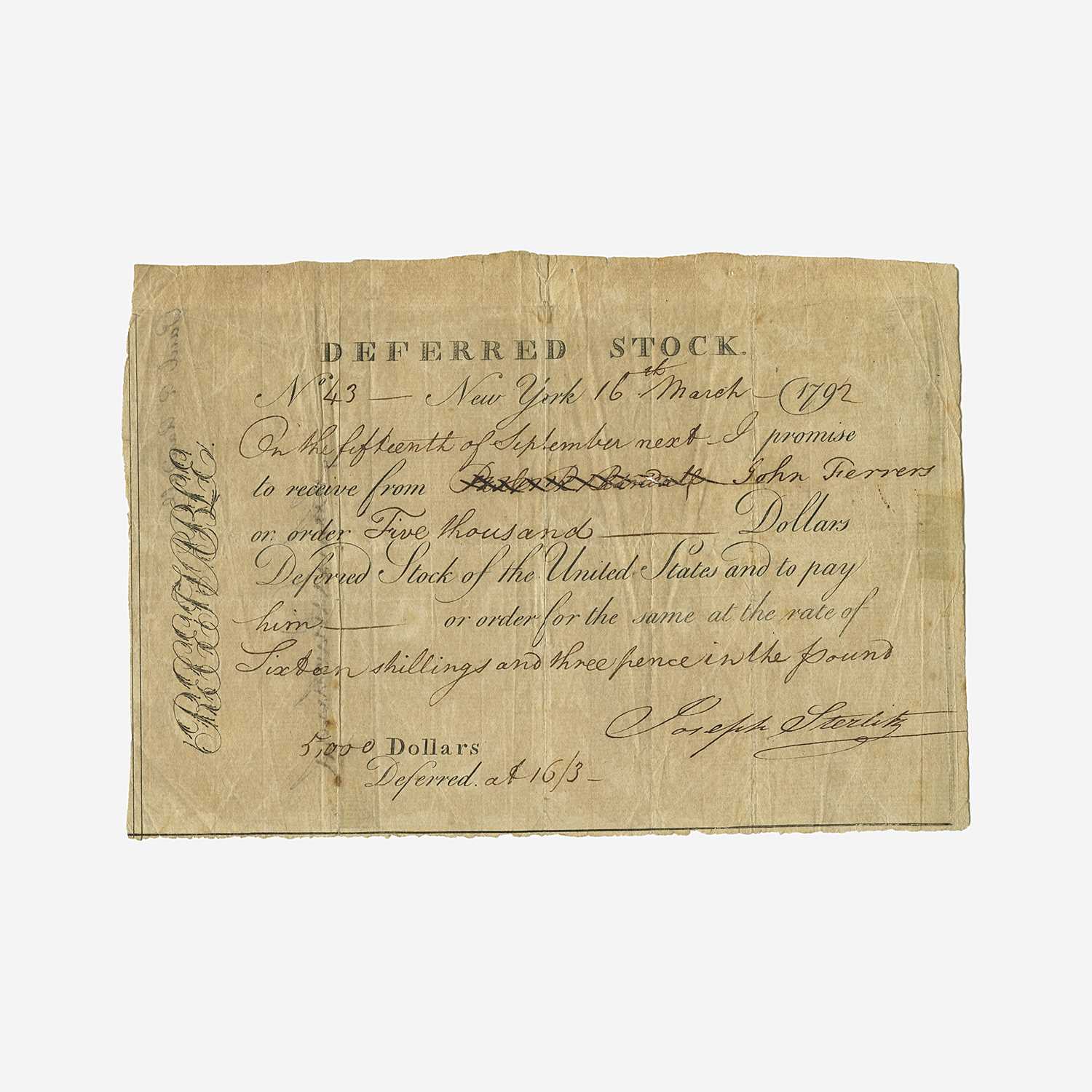
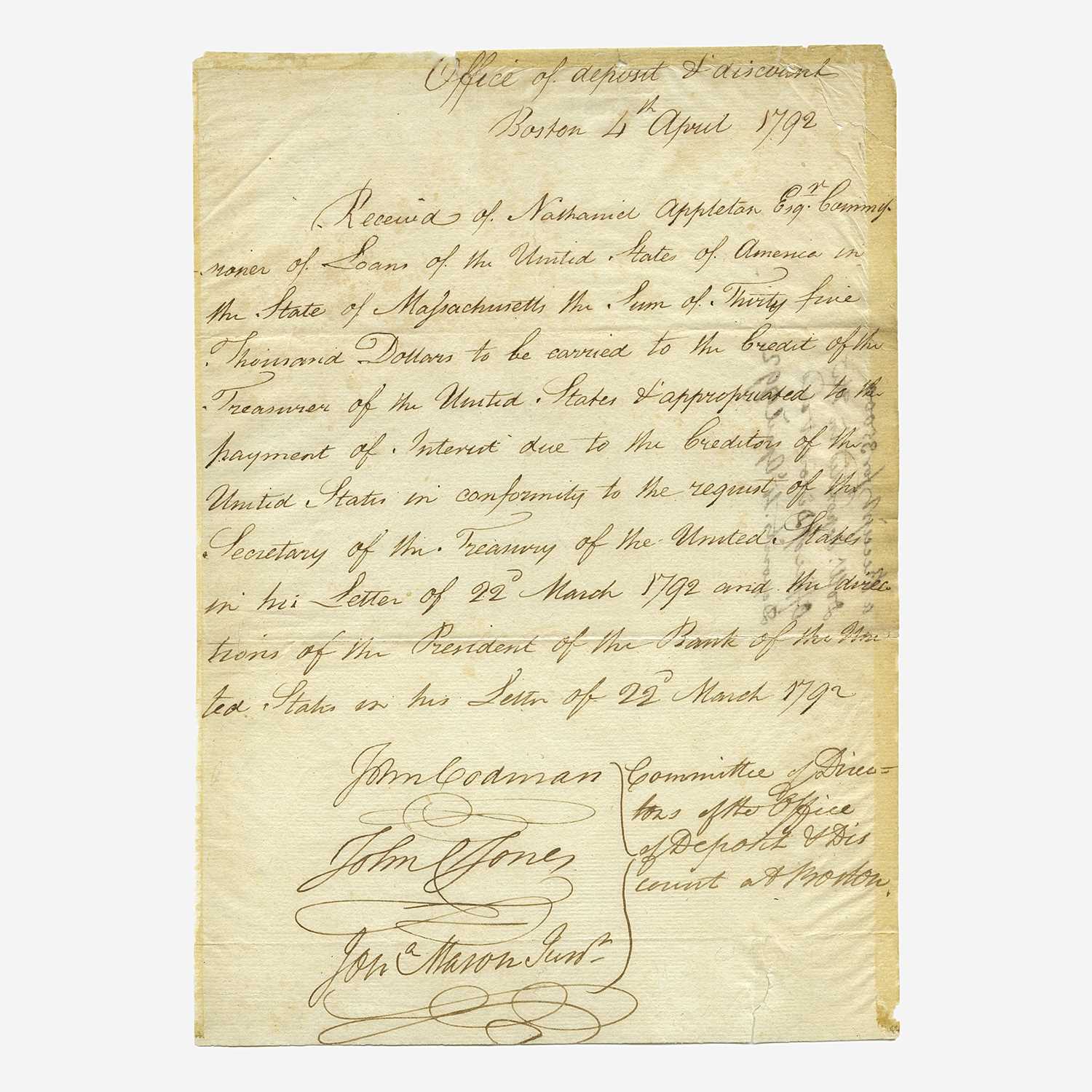
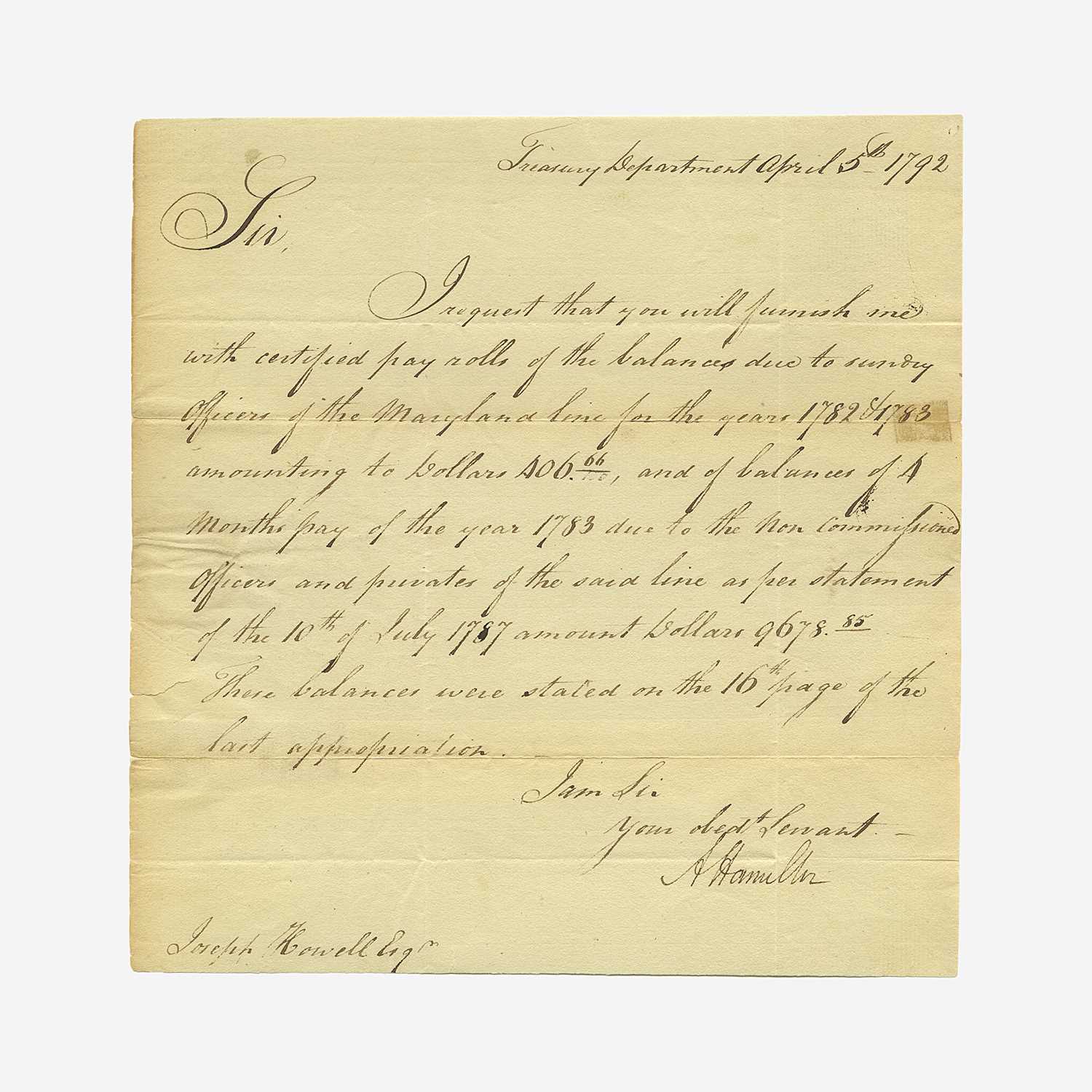
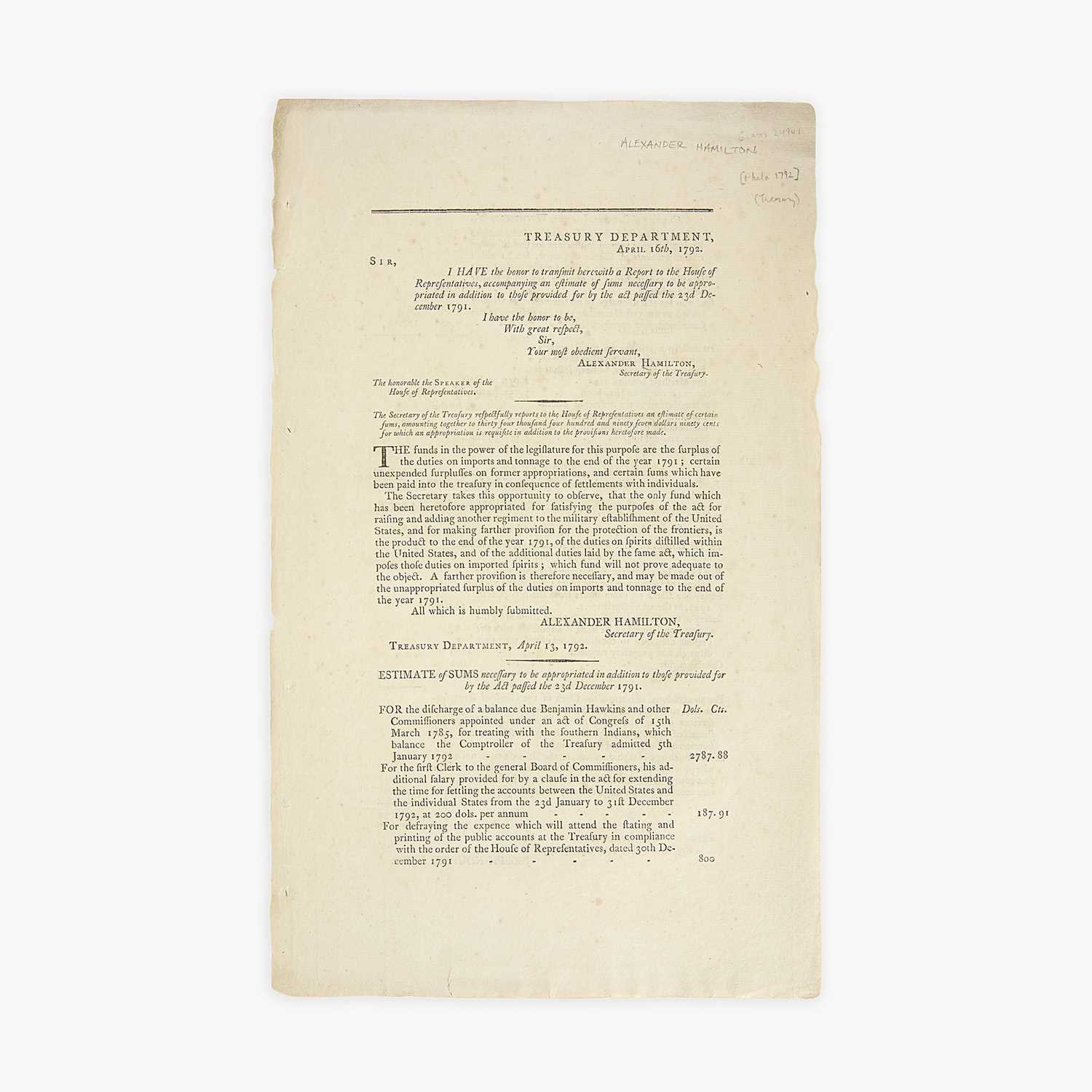
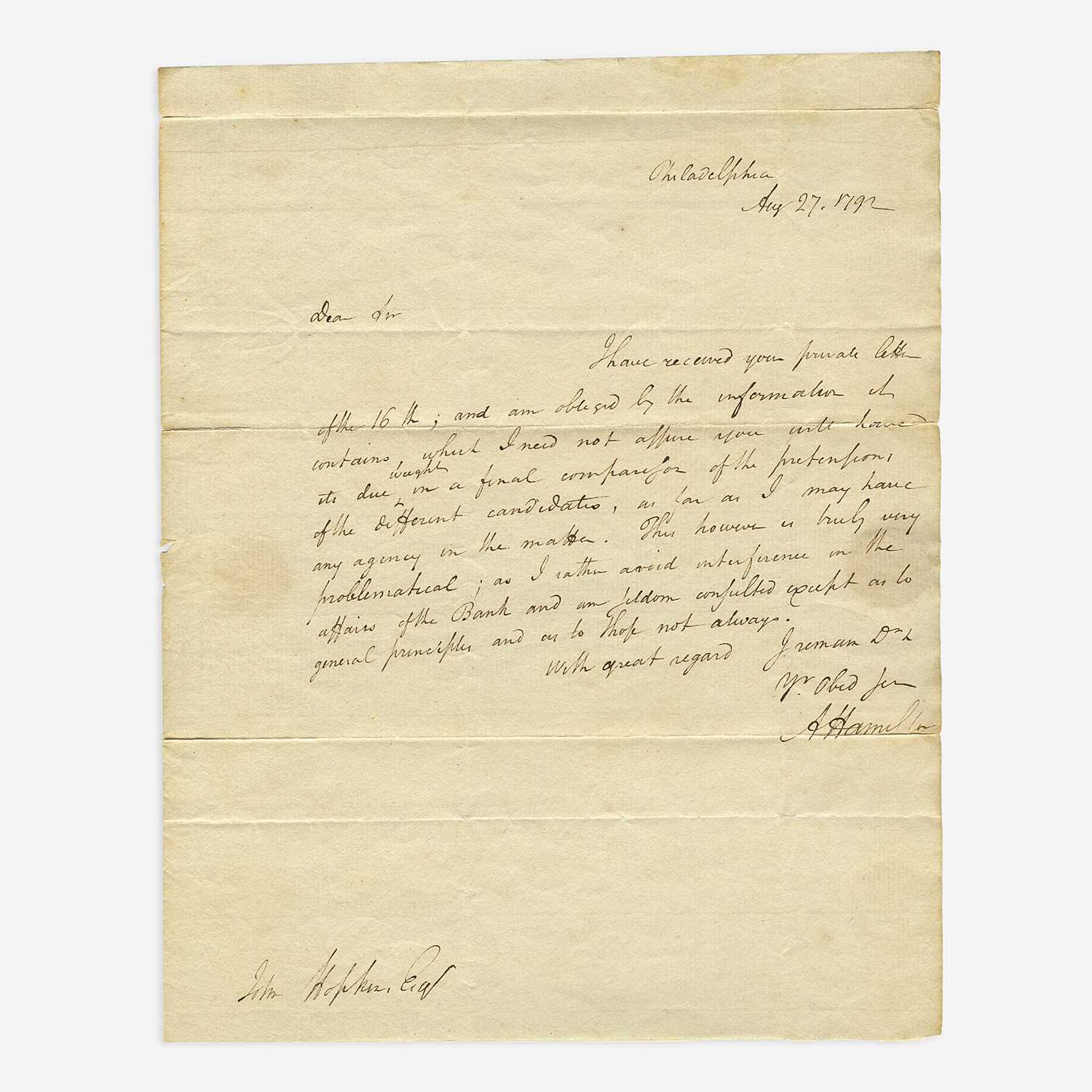
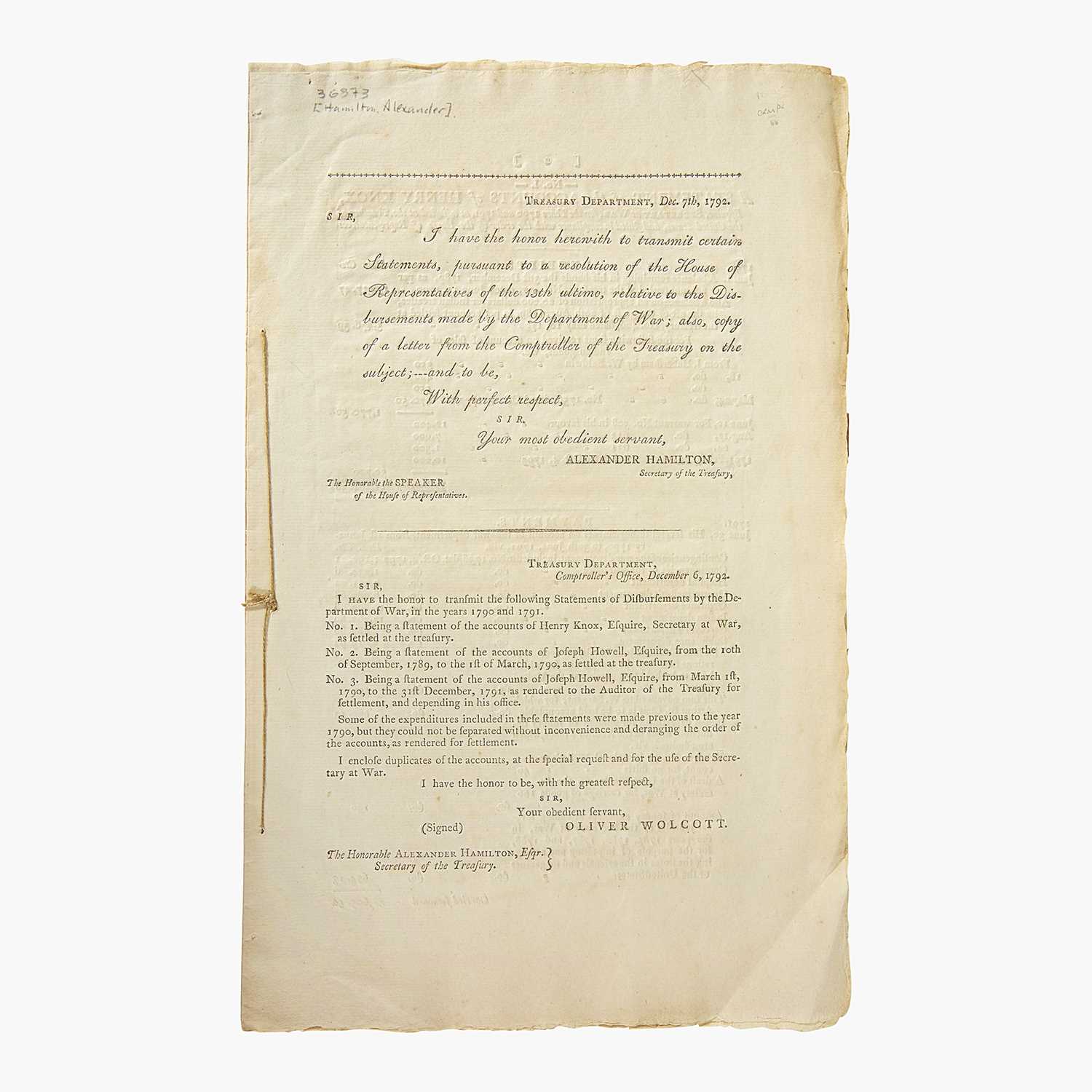
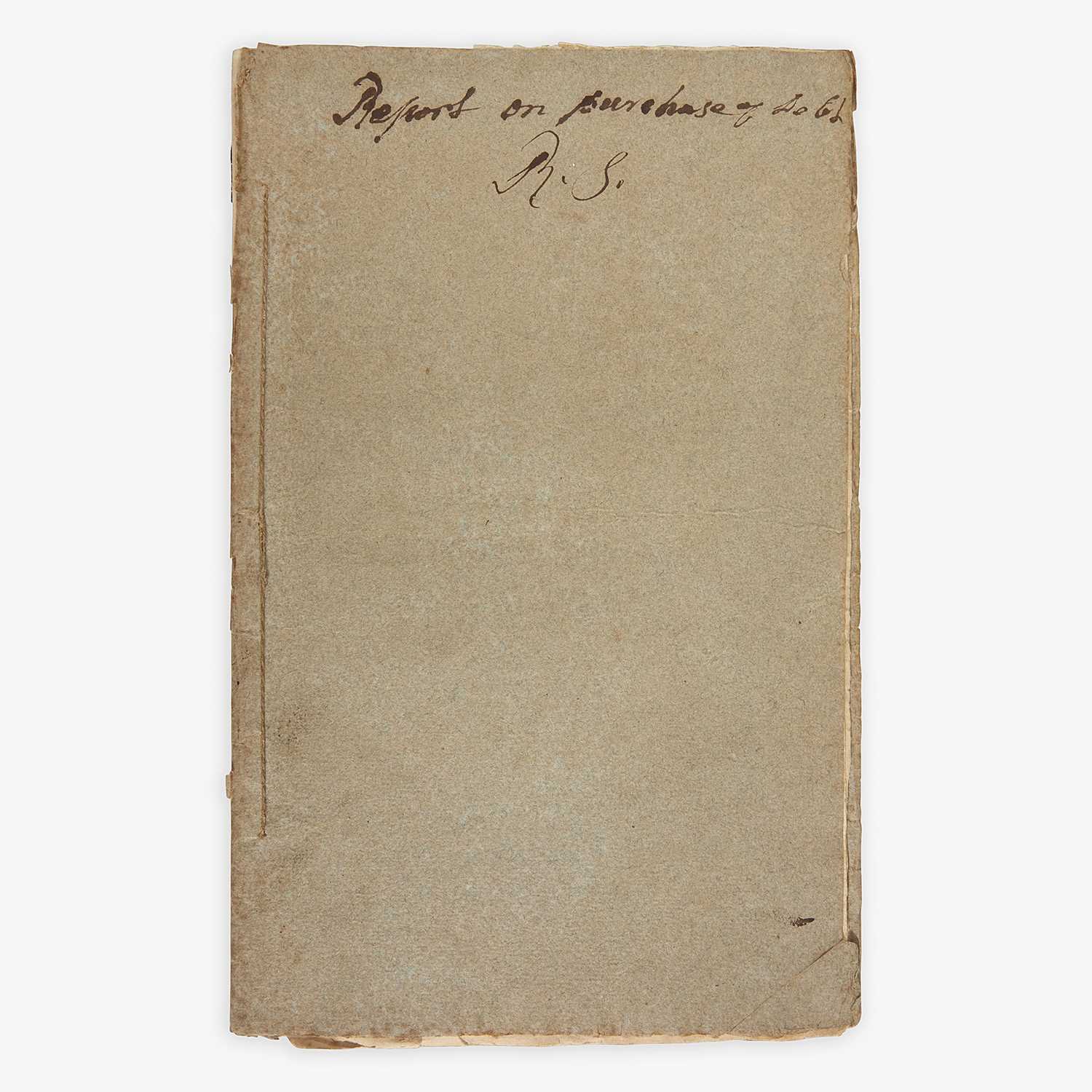
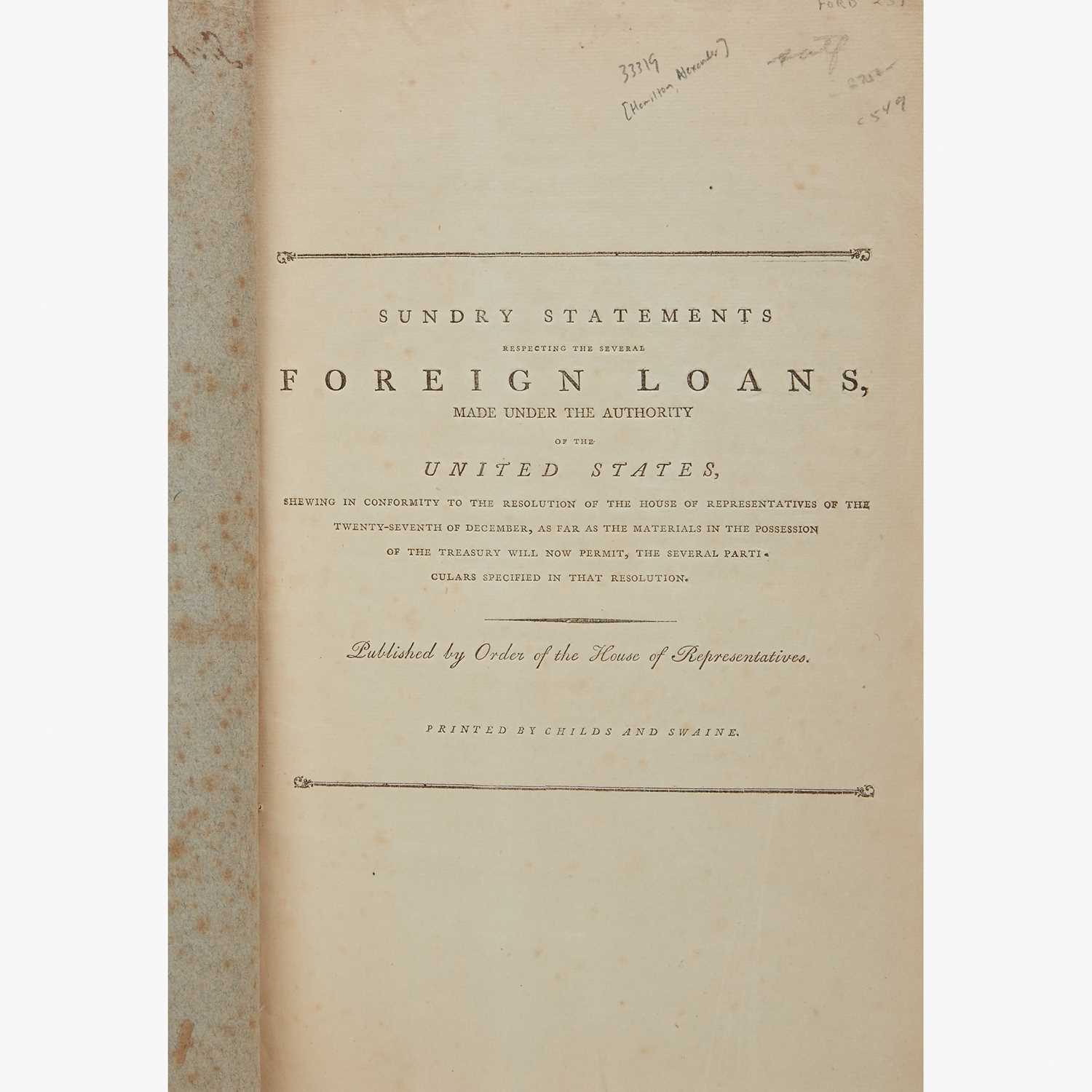
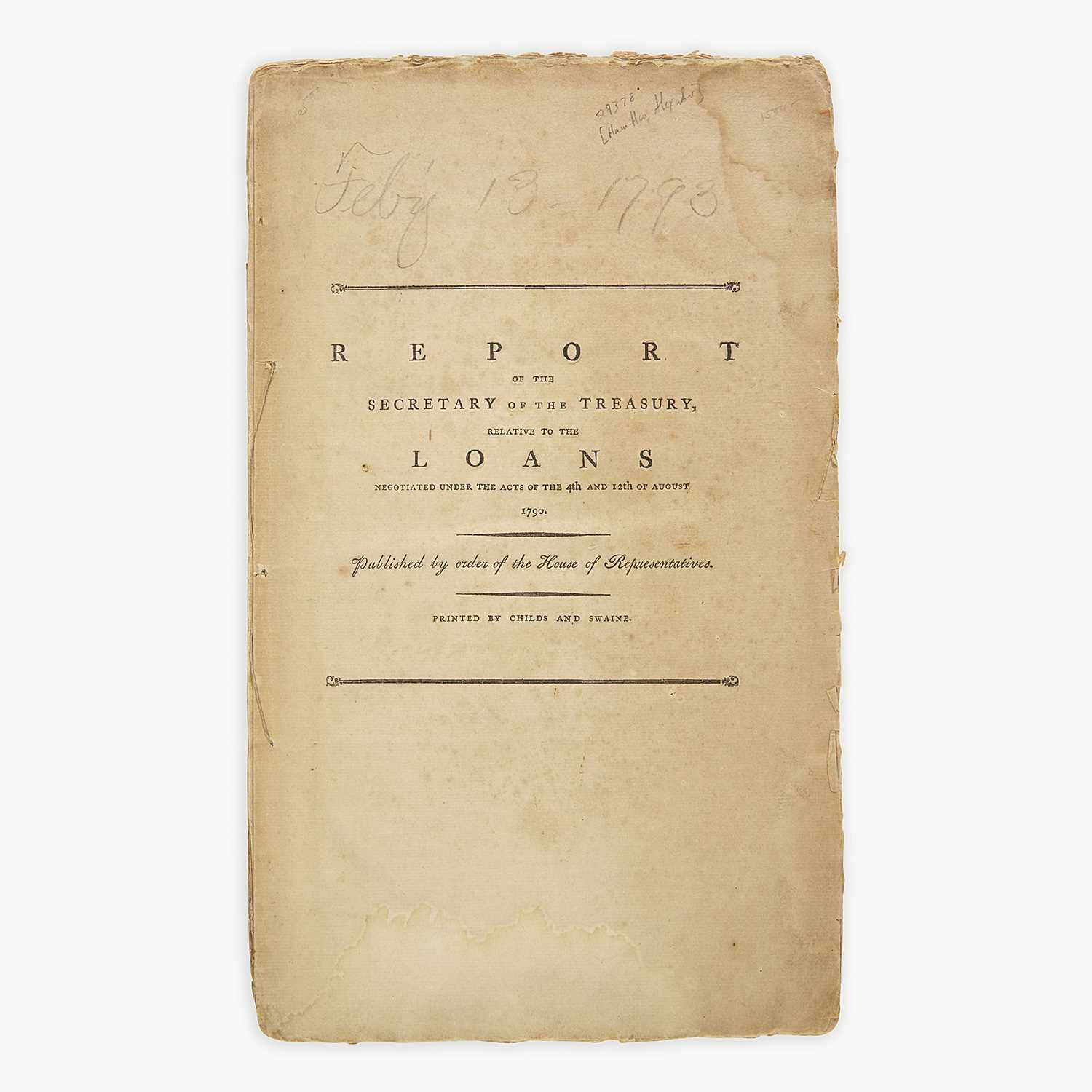
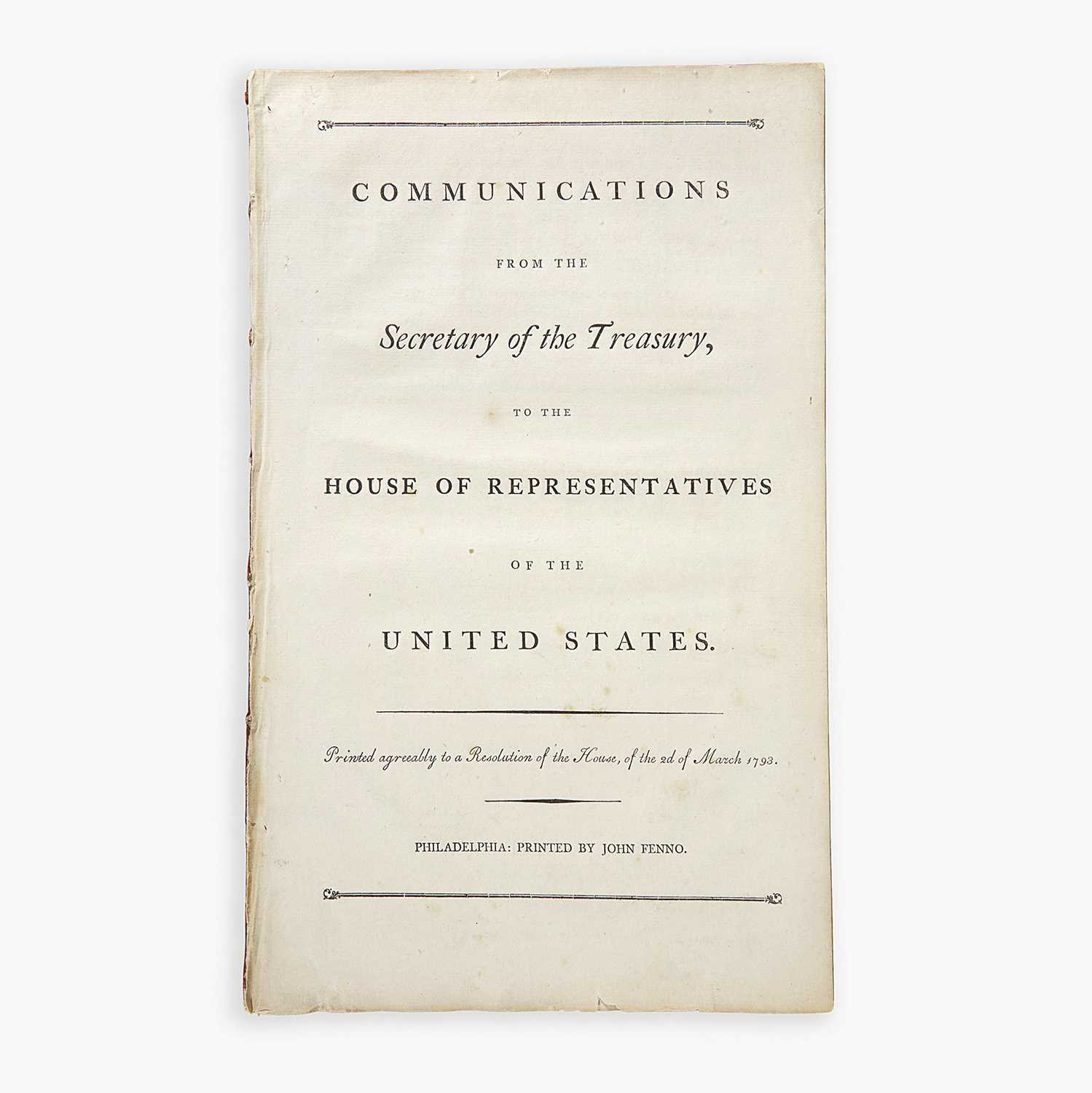
Try LotSearch and its premium features for 7 days - without any costs!
Be notified automatically about new items in upcoming auctions.
Create an alert